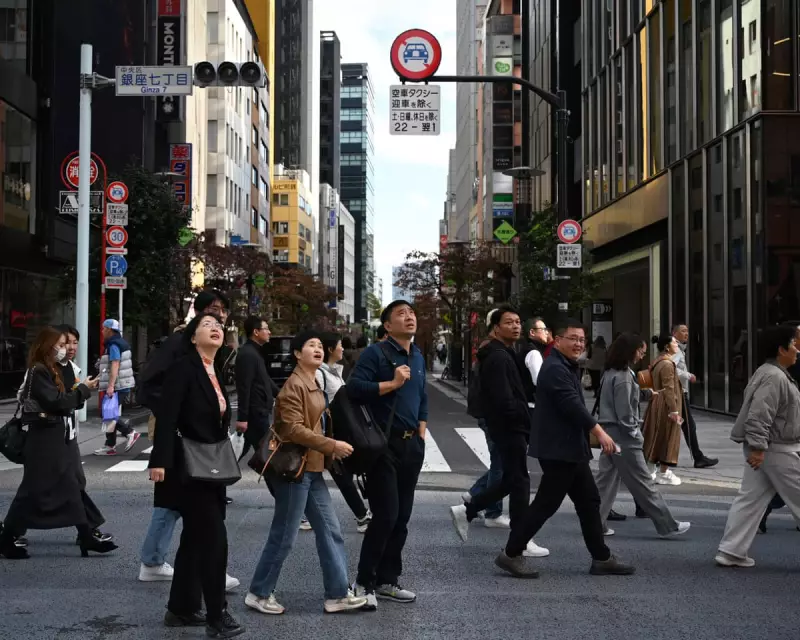
Japanese tourism and retail shares experienced significant declines on Monday after China issued a formal travel advisory warning its citizens against visiting Japan. The diplomatic warning comes amid escalating tensions between the two Asian powers following controversial comments from Japan's Prime Minister Sanae Takaichi about Taiwan.
Market Impact and Economic Fallout
The financial markets reacted swiftly to Beijing's travel advisory, with major Japanese companies seeing substantial share price drops during morning trading. Cosmetics giant Shiseido led the declines with a 9% fall, while department store group Takashimaya dropped more than 5%. Fast Retailing, the parent company of popular clothing brand Uniqlo, saw its shares decrease by over 4%.
This market reaction underscores the economic importance of Chinese tourism to Japan, with China representing the largest source of international visitors to the country. The timing of the advisory could not be worse for Japan's retail and tourism sectors, which have been recovering from pandemic-related disruptions.
Diplomatic Crisis Over Taiwan Comments
The current diplomatic friction stems from remarks made by Prime Minister Takaichi in Japan's parliament on 7th November. During the session, Takaichi suggested that any use of force against Taiwan could constitute a situation threatening Japan's survival, potentially warranting a military response from Tokyo.
"If a Taiwan emergency entails battleships and the use of force, then that could constitute a situation threatening the survival of Japan, any way you slice it," Takaichi told parliament members. These comments directly challenge China's position on Taiwan, which Beijing considers an inseparable part of its territory.
The Japanese government has since attempted to clarify that its official position on Taiwan remains unchanged. Under Japan's self-imposed constitutional rules, military action is only permitted under specific conditions, including existential threats to the nation.
Escalating Tensions and Regional Implications
The diplomatic situation deteriorated further last week when both nations summoned each other's ambassadors in reciprocal diplomatic protests. The travel advisory represents Beijing's latest response to what it perceives as interference in its internal affairs.
Adding to the regional tensions, the Chinese coastguard announced on Sunday that its ships had conducted a "rights enforcement patrol" through waters surrounding the Senkaku islands. These islands are administered by Japan but claimed by China, where they are known as the Diaoyu islands.
Historical context complicates the current dispute, as Japan occupied Taiwan for decades until 1945. Beijing has consistently maintained that Taiwan is part of Chinese territory and has not ruled out using force to achieve reunification.
In an attempt to de-escalate the situation, Japanese media reported that Masaaki Kanai, director general of the Asian and Oceanian Affairs Bureau at Japan's foreign ministry, travelled to China on Monday for talks with his Chinese counterpart Liu Jinsong. The discussions were expected to reinforce Japan's position that Takaichi's remarks do not represent a shift in traditional Japanese policy toward Taiwan.
Despite being key trading partners, historical mistrust and ongoing territorial disputes frequently test the relationship between China and Japan. The current crisis highlights how quickly regional tensions can impact economic relations between the two Asian powers.





